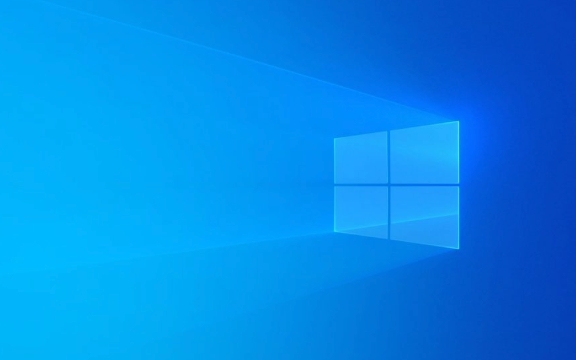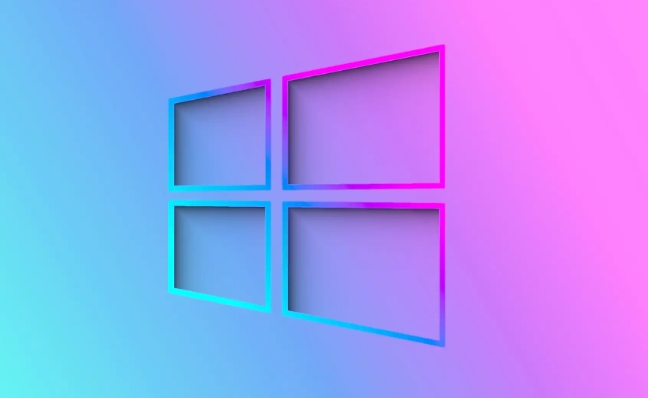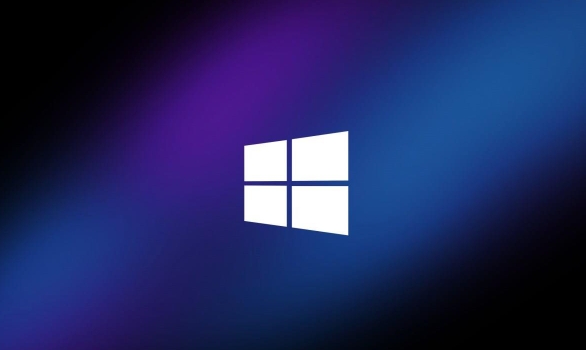If the external hard disk cannot be displayed on a Windows laptop, first check the physical connection, try to replace the USB cable or port, and ensure that the hard disk power is normal; secondly, check whether the hard disk is recognized in File Explorer and Disk Management, and manually add it if the drive is not assigned; then uninstall the driver through Device Manager and re-plug and unplug the device, or run hardware and device troubleshooting; if the hard disk is displayed as "Unallocated" or "RAW", you can try data recovery first and then format it; if the problem is still not solved, it may be hardware damage, so it is recommended to seek professional help.

If your external hard drive isn't showing up on your Windows laptop, it can be frustrating, especially if you need to access important files. The issue could be due to a variety of reasons — from connection problems to driver issues or even drive errors. Let's break it down and see what you can do to get it working again.

Check the Physical Connection and Port
Before diving into software fixes, make sure the basics are covered. Often, the problem is as simple as a loose cable or a faulty USB port.
- Try a different USB cable — some cables only charge and don't transfer data
- Plug the drive into another USB port on your laptop
- If you're using a USB hub, try connecting directly to the laptop
- Listen for any sounds from the drive — spinning or clicking might indicate it's powering on
If the drive is powered externally, make sure it's plugged in and turned on. Sometimes, the issue isn't with the laptop at all but with the power source or the drive's own power supply.

Look for the Drive in File Explorer and Disk Management
Even if the drive isn't showing up on your desktop or in File Explorer, it might still be recognized by the system. You can check using Disk Management.
- Press
Windows R, typediskmgmt.msc, and hit Enter - In the Disk Management window, look for your drive in the list
- If it appears but isn't assigned a drive letter, right-click the partition and choose “Change Drive Letter and Paths”
- Assign a new letter and see if it shows up
If the drive is listed but labeled as “Unallocated” or “RAW,” that's a different issue — more on that later.

In File Explorer, go to “This PC” or “My Computer” and check under “Devices and drives.” Sometimes the drive is there but not popping up automatically.
Troubleshoot Driver and System Issues
Windows might not be loading the correct drivers for your external drive, or there could be a system glitch.
- Open Device Manager (
Windows X, then click Device Manager) - Look under “Disk drives” and see if your external drive is listed
- Right-click it and select “Uninstall device”
- Unplug the drive, wait a few seconds, then plug it back in — Windows should reinstall the drivers automatically
If that doesn't work, you can also run the built-in Hardware and Devices troubleshooter:
- Go to Settings > Update & Security > Troubleshoot
- Click on “Additional troubleshooters”
- Run the “Hardware and Devices” troubleshooter
Also, make sure your system is up to date — sometimes a Windows update includes fixes for peripheral recognition issues.
Consider File System and Data Recovery Options
If the drive is visible in Disk Management but not accessible, it might have file system issues.
- Right-click the drive in Disk Management and choose “Format”
- Be aware: this will erase all data, so only do it if you don't need the files or have already recovered them
- Choose a file system like NTFS or exFAT, depending on your use case
If the drive shows as “RAW,” it means Windows can't recognize the file system. In this case:
- Don't format it yet — try data recovery tools like Recuva or EaseUS Data Recovery Wizard first
- Once data is recovered, format the drive properly
Also, if the drive has bad sectors or physical damage, it might not mount correctly. In such cases, professional recovery might be needed.
Basically these are the check methods. Sometimes the problem is simple, and can be solved by changing a line or port; sometimes it may require formatting or repairing system errors. If you still don’t work after trying these steps, it may be that the hardware is damaged. It is recommended to find a professional at this time.
The above is the detailed content of My Windows laptop external hard drive not showing up. For more information, please follow other related articles on the PHP Chinese website!

Hot AI Tools

Undress AI Tool
Undress images for free

Undresser.AI Undress
AI-powered app for creating realistic nude photos

AI Clothes Remover
Online AI tool for removing clothes from photos.

Clothoff.io
AI clothes remover

Video Face Swap
Swap faces in any video effortlessly with our completely free AI face swap tool!

Hot Article

Hot Tools

Notepad++7.3.1
Easy-to-use and free code editor

SublimeText3 Chinese version
Chinese version, very easy to use

Zend Studio 13.0.1
Powerful PHP integrated development environment

Dreamweaver CS6
Visual web development tools

SublimeText3 Mac version
God-level code editing software (SublimeText3)

Hot Topics
 Windows 11 slow boot time fix
Jul 04, 2025 am 02:04 AM
Windows 11 slow boot time fix
Jul 04, 2025 am 02:04 AM
The problem of slow booting can be solved by the following methods: 1. Check and disable unnecessary booting programs; 2. Turn off the quick boot function; 3. Update the driver and check disk health; 4. Adjust the number of processor cores (only for advanced users). For Windows 11 systems, first, the default self-start software such as QQ and WeChat are disabled through the task manager to improve the startup speed; if you use dual systems or old hardware, you can enter the power option to turn off the quick boot function; second, use the device manager to update the driver and run the chkdsk command to fix disk errors, and it is recommended to replace the mechanical hard disk with SSD; for multi-core CPU users, the kernel parameters can be adjusted through bcdedit and msconfig to optimize the startup efficiency. Most cases can be corrected by basic investigation
 How to Change Font Color on Desktop Icons (Windows 11)
Jul 07, 2025 pm 12:07 PM
How to Change Font Color on Desktop Icons (Windows 11)
Jul 07, 2025 pm 12:07 PM
If you're having trouble reading your desktop icons' text or simply want to personalize your desktop look, you may be looking for a way to change the font color on desktop icons in Windows 11. Unfortunately, Windows 11 doesn't offer an easy built-in
 Fixed Windows 11 Google Chrome not opening
Jul 08, 2025 pm 02:36 PM
Fixed Windows 11 Google Chrome not opening
Jul 08, 2025 pm 02:36 PM
Fixed Windows 11 Google Chrome not opening Google Chrome is the most popular browser right now, but even it sometimes requires help to open on Windows. Then follow the on-screen instructions to complete the process. After completing the above steps, launch Google Chrome again to see if it works properly now. 5. Delete Chrome User Profile If you are still having problems, it may be time to delete Chrome User Profile. This will delete all your personal information, so be sure to back up all relevant data. Typically, you delete the Chrome user profile through the browser itself. But given that you can't open it, here's another way: Turn on Windo
 How to fix second monitor not detected in Windows?
Jul 12, 2025 am 02:27 AM
How to fix second monitor not detected in Windows?
Jul 12, 2025 am 02:27 AM
When Windows cannot detect a second monitor, first check whether the physical connection is normal, including power supply, cable plug-in and interface compatibility, and try to replace the cable or adapter; secondly, update or reinstall the graphics card driver through the Device Manager, and roll back the driver version if necessary; then manually click "Detection" in the display settings to identify the monitor to confirm whether it is correctly identified by the system; finally check whether the monitor input source is switched to the corresponding interface, and confirm whether the graphics card output port connected to the cable is correct. Following the above steps to check in turn, most dual-screen recognition problems can usually be solved.
 Want to Build an Everyday Work Desktop? Get a Mini PC Instead
Jul 08, 2025 am 06:03 AM
Want to Build an Everyday Work Desktop? Get a Mini PC Instead
Jul 08, 2025 am 06:03 AM
Mini PCs have undergone
 Fixed the failure to upload files in Windows Google Chrome
Jul 08, 2025 pm 02:33 PM
Fixed the failure to upload files in Windows Google Chrome
Jul 08, 2025 pm 02:33 PM
Have problems uploading files in Google Chrome? This may be annoying, right? Whether you are attaching documents to emails, sharing images on social media, or submitting important files for work or school, a smooth file upload process is crucial. So, it can be frustrating if your file uploads continue to fail in Chrome on Windows PC. If you're not ready to give up your favorite browser, here are some tips for fixes that can't upload files on Windows Google Chrome 1. Start with Universal Repair Before we learn about any advanced troubleshooting tips, it's best to try some of the basic solutions mentioned below. Troubleshooting Internet connection issues: Internet connection
 How to clear the print queue in Windows?
Jul 11, 2025 am 02:19 AM
How to clear the print queue in Windows?
Jul 11, 2025 am 02:19 AM
When encountering the problem of printing task stuck, clearing the print queue and restarting the PrintSpooler service is an effective solution. First, open the "Device and Printer" interface to find the corresponding printer, right-click the task and select "Cancel" to clear a single task, or click "Cancel all documents" to clear the queue at one time; if the queue is inaccessible, press Win R to enter services.msc to open the service list, find "PrintSpooler" and stop it before starting the service. If necessary, you can manually delete the residual files under the C:\Windows\System32\spool\PRINTERS path to completely solve the problem.







